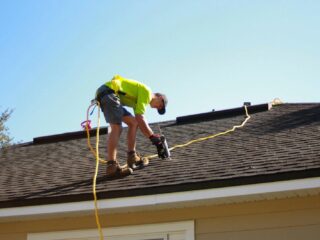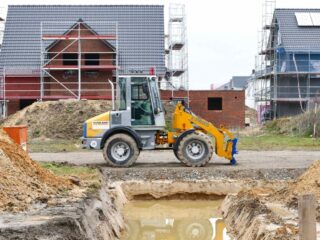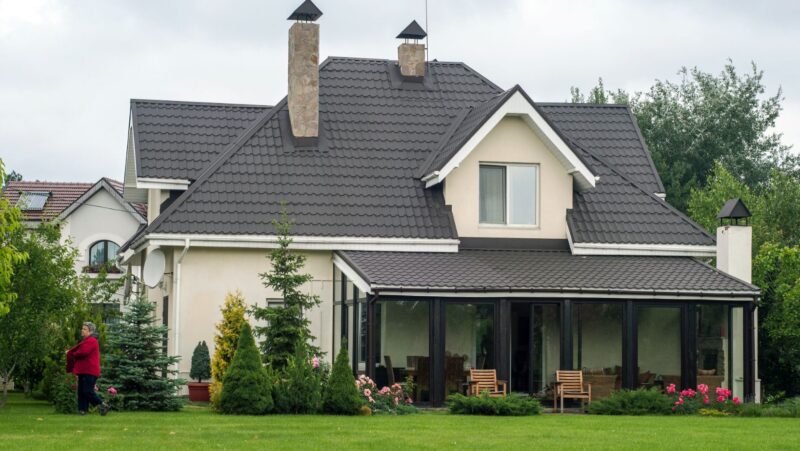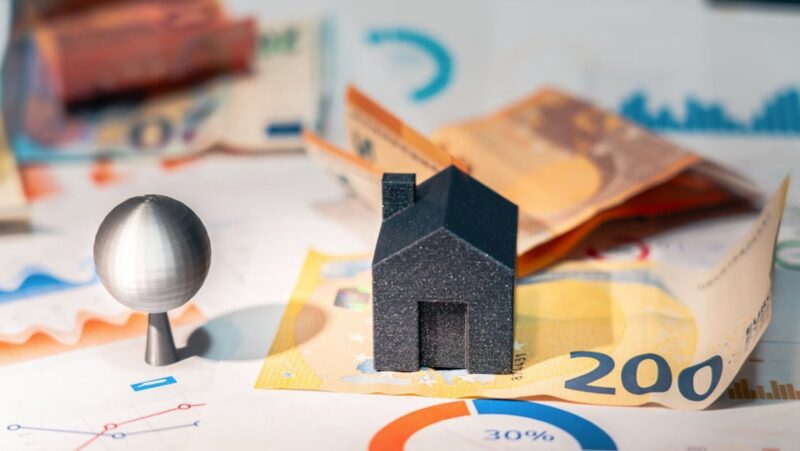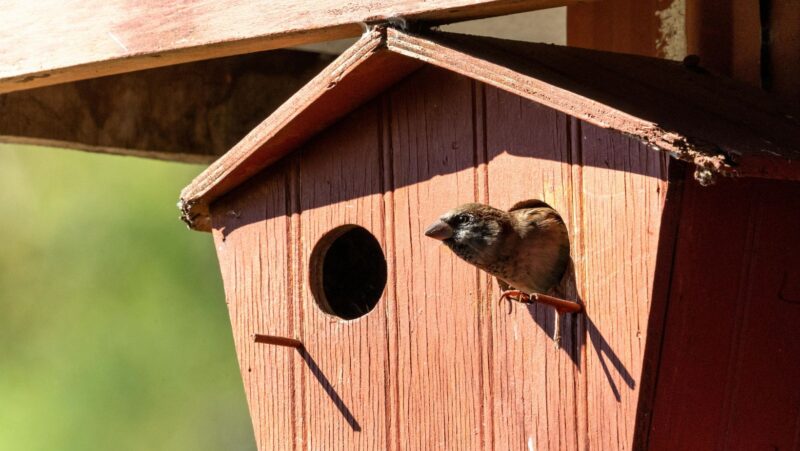
When it comes to home improvement, one of the most important aspects that often gets overlooked is the exterior siding. Modern siding has become a focal point of residential construction and renovation due to its impressive aesthetic qualities, durability, and energy efficiency. As home design evolves, so too does the material used to enhance the exterior of our homes. Modern siding is not only functional but is also a reflection of the homeowner’s style and commitment to sustainability. In this article, we will explore the various types of modern siding, their benefits, and why they have become a popular choice for homeowners in recent years.
What is Modern Siding?
Modern siding refers to the contemporary materials and designs used to cover the exterior walls of a house or building. Unlike the traditional wood or vinyl siding options, modern siding materials have been developed to meet higher performance standards, offering increased durability, energy efficiency, and a range of design choices. Whether you’re building a new home or looking to upgrade your existing home, modern siding options give homeowners a wide variety of choices to suit their personal tastes, budget, and environmental goals.
Modern siding encompasses a range of materials, from metal panels and fiber cement to engineered wood and eco-friendly options such as bamboo and recycled materials. As trends shift towards sustainability and energy efficiency, siding materials have evolved, offering both functionality and beauty while minimizing environmental impact.
Types of Modern Siding
- Fiber Cement Siding One of the most popular choices in modern siding is fiber cement. Known for its durability, resistance to the elements, and fireproof nature, fiber cement siding offers a sleek and contemporary look. Made from a combination of wood fibers, cement, and sand, this material can mimic the appearance of wood, stone, or stucco. Fiber cement siding is an excellent choice for homeowners seeking a low-maintenance option that doesn’t sacrifice style.
- Benefits of Fiber Cement Siding:
- Durability: Resistant to termites, rot, and mold, making it ideal for harsh climates.
- Fire-Resistant: Provides an added layer of safety for your home.
- Aesthetic Versatility: Available in various textures and colors, allowing homeowners to customize their exterior.
- Vinyl Siding Vinyl siding has long been a staple of modern home design. Over the years, vinyl has undergone a transformation, improving in quality and design. Modern vinyl siding is available in an array of colors and textures, including wood grain patterns that mimic real wood without the upkeep. It’s known for its affordability and ease of installation, making it a top choice for many homeowners.
- Benefits of Vinyl Siding:
- Cost-Effective: One of the most affordable siding options available.
- Low Maintenance: Requires little more than periodic cleaning to maintain its appearance.
- Energy Efficiency: Some vinyl siding products come with insulation, increasing energy efficiency and lowering heating and cooling costs.
- Metal Siding Metal siding, often made from aluminum or steel, has gained popularity in modern architecture due to its sleek, industrial aesthetic. It is perfect for contemporary, minimalist homes, offering a clean and polished look. Additionally, metal siding is incredibly durable and resistant to extreme weather conditions.
- Benefits of Metal Siding:
- Long-Lasting: Resistant to rot, mold, and insect damage.
- Eco-Friendly: Many metal siding options are made from recycled materials and are 100% recyclable.
- Minimal Maintenance: Metal siding can withstand harsh elements and doesn’t require frequent painting or repairs.
- Engineered Wood Siding Engineered wood siding is a modern alternative to traditional wood siding. Made from wood fibers, resin, and wax, engineered wood siding offers the look of natural wood without the associated drawbacks, such as warping, rotting, and frequent maintenance. It is available in various finishes and can be painted to match any home’s aesthetic.
- Benefits of Engineered Wood Siding:
- Sustainable: Often made from recycled wood materials, engineered wood siding is an environmentally friendly option.
- Versatile Design: Can be customized to suit different architectural styles.
- Resistant to Moisture and Insects: Unlike traditional wood siding, engineered wood does not easily succumb to moisture damage or insect infestations.
- Composite Siding Composite siding is made from a blend of various materials, such as wood fibers, polymers, and resins. This combination makes composite siding a durable and low-maintenance option. It can replicate the appearance of natural wood siding but with far fewer maintenance requirements. Composite siding is often designed to resist fading, cracking, and warping.
- Benefits of Composite Siding:
- Durability: Resistant to fading, rotting, and cracking.
- Low Maintenance: Requires very little upkeep compared to traditional wood siding.
- Variety: Available in a range of colors, textures, and styles.
- Bamboo Siding As sustainability becomes a primary focus for many homeowners, bamboo siding is gaining traction as an eco-friendly option. Bamboo is a renewable resource that is incredibly strong and durable, making it an excellent choice for modern siding. Its natural aesthetic is perfect for homeowners who desire a unique, organic appearance.
- Benefits of Bamboo Siding:
- Eco-Friendly: Bamboo is a fast-growing resource, making it highly sustainable.
- Durability: Bamboo is highly resistant to moisture, insects, and rot.
- Unique Aesthetic: Bamboo’s distinctive appearance adds a natural, earthy feel to the home.
Benefits of Modern Siding
- Durability One of the primary reasons homeowners are opting for modern siding is its incredible durability. Unlike traditional materials that may require frequent repairs and upkeep, modern siding materials are built to withstand the test of time. Fiber cement, metal, and engineered wood, for example, are resistant to weathering, rot, and insect damage. This means homeowners can enjoy a long-lasting exterior without the constant worry of maintenance.
- Energy Efficiency Many modern siding materials are designed to enhance the energy efficiency of your home. Insulated vinyl siding, for example, can help reduce heat loss in the winter and keep your home cooler in the summer. With energy efficiency being a growing concern, modern siding plays a crucial role in minimizing the need for excessive heating and cooling, which translates to lower utility bills.
- Curb Appeal Modern siding materials allow homeowners to create a home exterior that reflects their personal style. Whether you prefer the sleek, contemporary look of metal or the warm, rustic feel of engineered wood, modern siding offers a wide variety of design options. The aesthetic value of modern siding can significantly boost your home’s curb appeal, making it stand out in your neighborhood.
- Low Maintenance Traditional wood siding often requires regular painting, sealing, and maintenance. In contrast, many modern siding materials, such as vinyl, fiber cement, and metal, require minimal upkeep. This means homeowners can enjoy a beautiful exterior without dedicating time and effort to regular repairs or touch-ups.
- Environmental Impact Modern siding materials have evolved with sustainability in mind. From recycled content in composite and engineered wood siding to the eco-friendly nature of bamboo, modern siding offers a more environmentally conscious approach to home construction and renovation. These materials are often designed to last longer and reduce waste, making them a better choice for eco-conscious homeowners.
Choosing the Right Modern Siding for Your Home
When selecting modern siding, it’s essential to consider various factors such as climate, budget, and personal aesthetic preferences. A material that works well in a cold, wet climate might not be the best choice for a dry, hot area. Additionally, some materials may require more maintenance or have a higher initial cost. It’s important to weigh the pros and cons of each option and choose the one that fits your specific needs.
Here are a few things to consider when choosing modern siding:
- Climate: Certain materials, like fiber cement and metal, perform better in areas with extreme weather conditions, while vinyl may be more suitable for milder climates.
- Aesthetic Preferences: Whether you prefer the sleek look of metal or the warm, natural look of wood, make sure the siding complements your home’s architectural style.
- Budget: While some materials, like vinyl, are more affordable upfront, others like metal or fiber cement may have a higher initial cost but offer long-term value through durability and low maintenance.
Conclusion
Modern siding has transformed the way we think about the exterior of our homes. With a wide range of materials offering durability, energy efficiency, and aesthetic appeal, there’s no shortage of options for homeowners looking to upgrade their home’s exterior. Whether you opt for fiber cement, metal, vinyl, or eco-friendly materials like bamboo, modern siding is a smart investment that enhances both the function and appearance of your home.

By understanding the different materials available and considering your specific needs, you can make an informed decision that will improve your home’s curb appeal and value for years to come.






